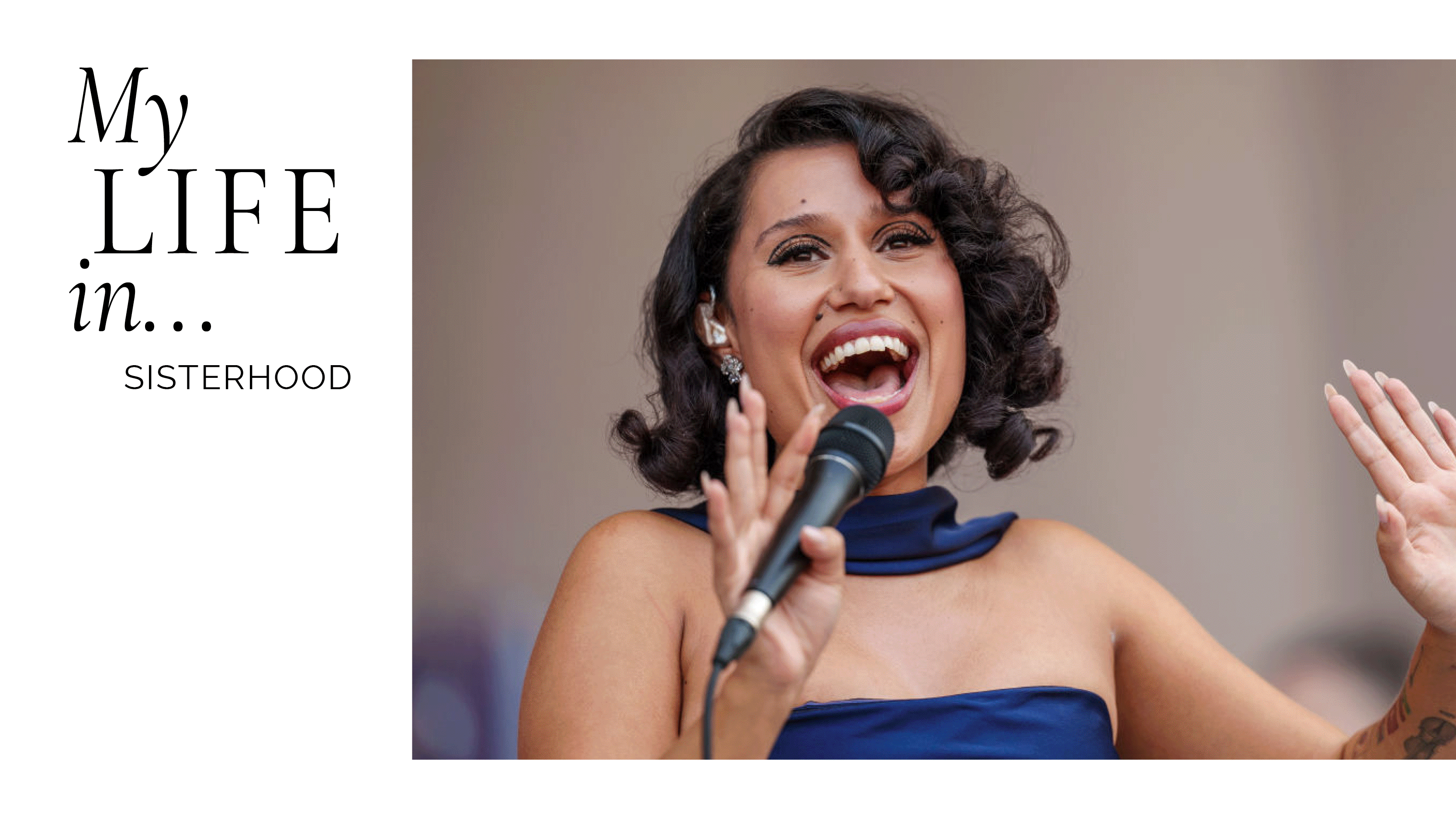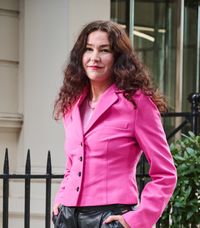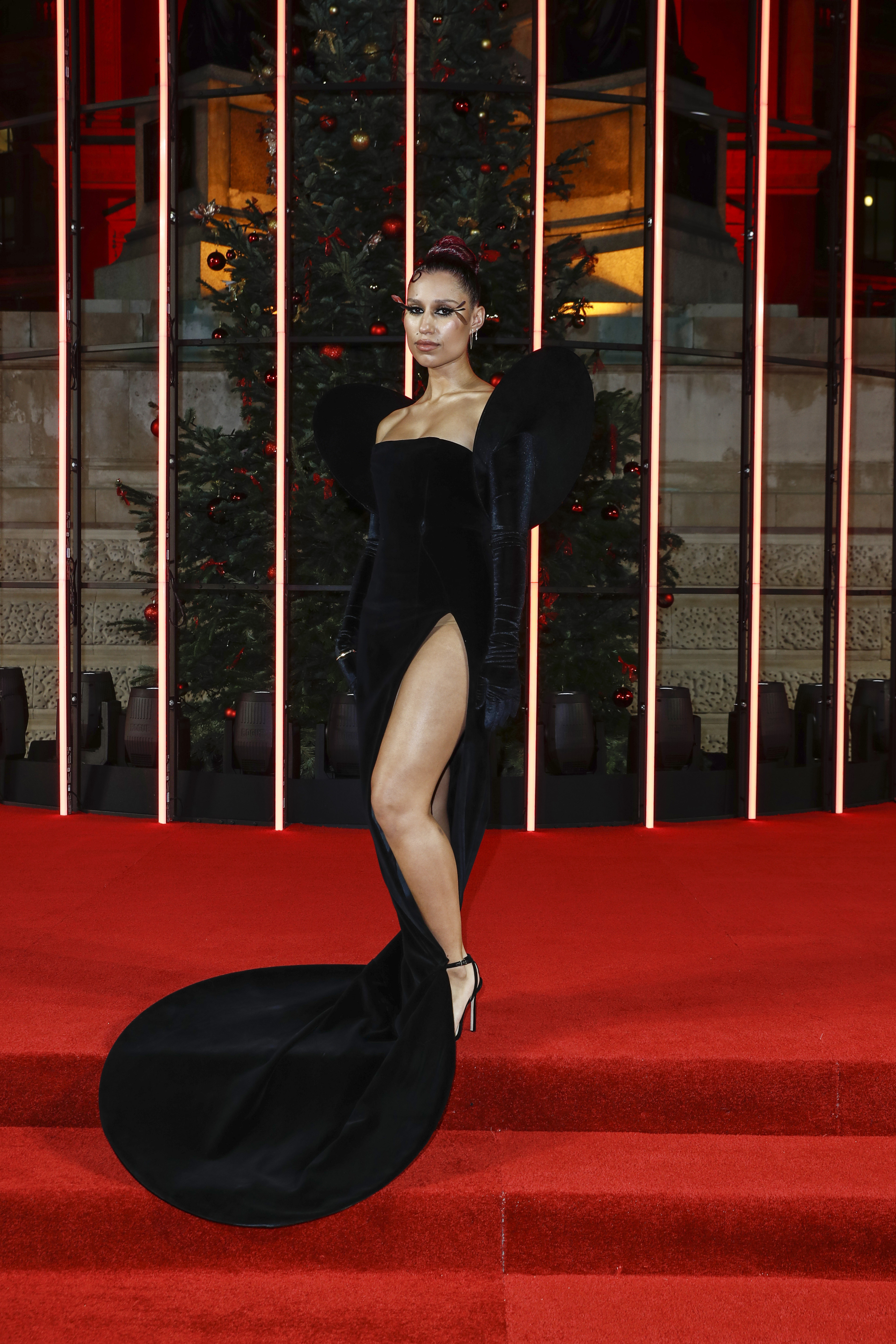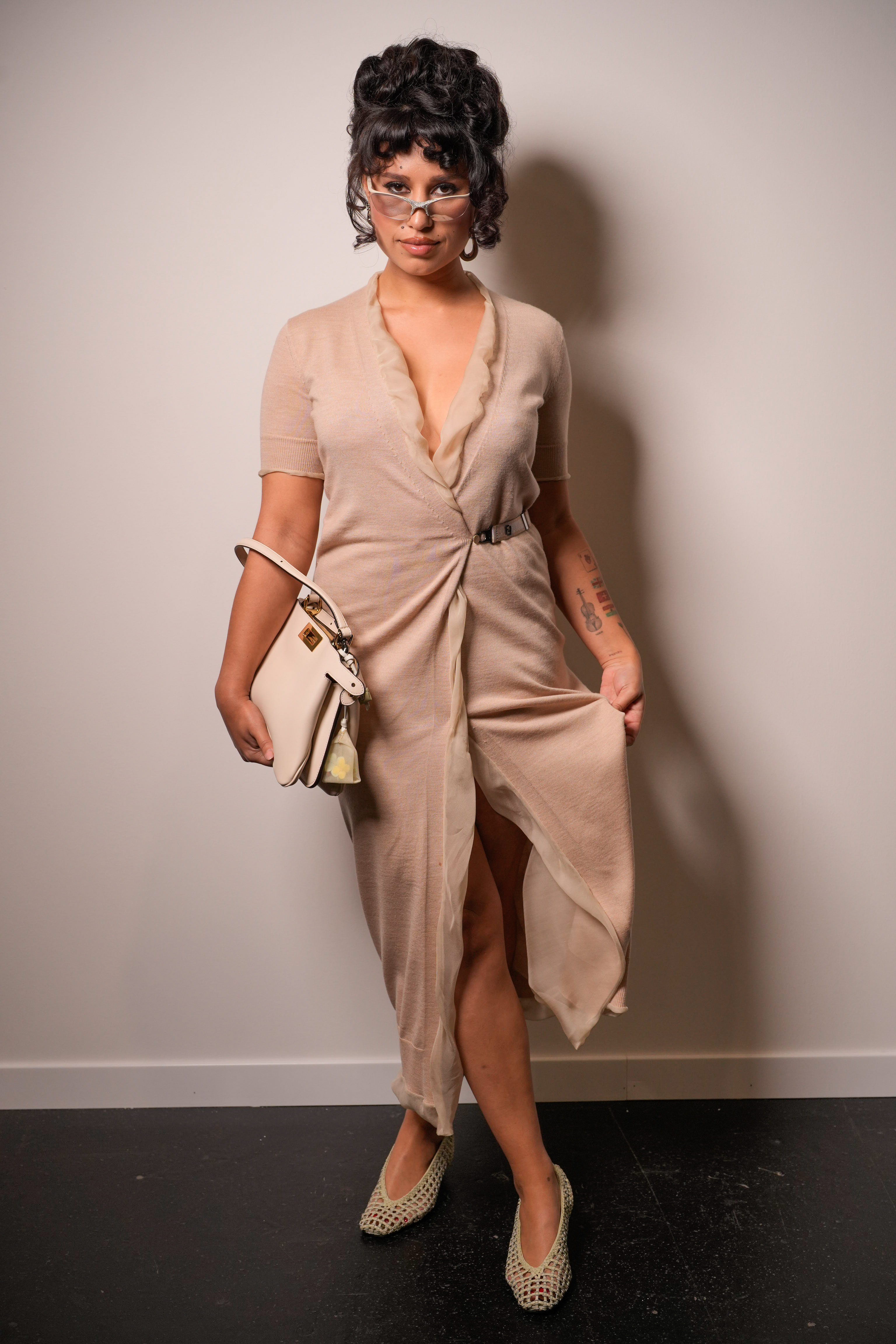Raye says music is her medicine—it’s also the reason she self-medicated for so long
“The time when you’re most vulnerable is when you’re a little girl with a dream”


Today, Raye is a bonafide pop star with a record-breaking number of wins at this year’s Brit Awards and a headline slot at next year’s All Points East festival, but it wasn’t always this way. Back in 2021, she was frantically worried her dreams might never be realised and frustrated by her label’s refusal to release her debut album. She took to Twitter to tell her fans all this: “I’m done,” she said, “being a polite pop star.” The post went viral and she was released from her contract, but it wouldn’t be the last time Raye would take the industry to task.
2022 brought the devastating single Ice Cream Man, which left everyone in the studio in tears, Clara Amfo told me. The track opens with: “So, this producer hit me up on the DM…” before unfurling into a vocalisation of Raye’s experience of sexual assault at ages “seven, just 21, was 17, was 11.”
Again, Raye went viral and what followed (along with those six Brit Awards), was her first-ever Grammy nomination for Songwriter of the Year, singing with Taylor Swift, and a world tour. She’s on her way to Mexico—the last show of that world tour—when we speak over Zoom. “I’ve been moving 100 miles an hour and just all these crazy things keep happening,” says Raye, seemingly bemused by the whole thing.
She’s in the back of a cab weaving through London with her best friend. Her trademark Hollywood bob is styled with Y2K-style glasses and sweats—in other words, she’s the epitome of an off-duty celebrity. This is pretty much the air she gives off as we natter and she compliments me on my colour-coordinated bookshelf and politely corrects me when I refer to her headline slot at All Points East as a homecoming tour.
She’s also quick to tell anyone that she’s from South of the river, Tooting, to be precise, where she grew up as the oldest of four girls, which—as a fellow eldest daughter—is what I want to speak to her about. She’s just starred in Nintendo’s latest TV ad with her sisters, Abby, Lauren, and Katelyn. Here, big sister Rachel ‘Raye’ Keen shares everything about sisterhood and why she’s “worried for our little girls becoming women”.
What was it like growing up with three younger sisters?
It was beautiful. I’m the oldest sister, so I'm super protective with my girls. I love them, but also, you know, all the typical stuff: ‘You took my hairbrush’.
Being a sister is kind of your first taste of human interaction. Those growing moments with my sisters probably define a lot of how my personality is and how I am. I’m definitely a girl’s girl because of it.
Celebrity news, beauty, fashion advice, and fascinating features, delivered straight to your inbox!
Do you think that being an older sister plays a part in why you stand up and speak out for women?
Probably. When you’re the oldest, if anyone upsets your sister or there’s something mean going on in school, you’re like, ‘Right! Who said it? I'm gonna go and talk to them.’ It’s that kind of protective instinct that you just have as an older sister.

Raye attends The Fashion Awards 2022 at the Royal Albert Hall
What does sisterhood mean to you?
You can have your blood God-given sisters and you can also have a family of women that you get to choose to have in your life. I think sisterhood is that raw and pure love that you choose to share with other women, be it your family or your chosen family.
If I call someone my sister—whether they are my actual sister or they’re my ‘sister’—it's coming from a really deep, true, passionate place of real love and saying, ‘You know, I’m gonna look out for you in this life. You're gonna look out for me and we’re gonna make memories together and we’ll take care of each other.’
If I call someone my sister—whether they are my actual sister or they’re my ‘sister’—it's coming from a really deep, true, passionate place of real love.
What do you think of the state of girls’ rights today?
We’re in a new time, and there’s an exponential amount of pressure on keeping up appearances. I think social media is such a huge part of everyone’s life now and that’s having a lot of negative impacts. A lot of us are exposed to an unhealthy amount of judgement and an un-normal amount of putting our lives out there.
Music makes the ugly, heavy, horrible burden feel a little bit more beautiful than it did in my head
All these screens and the dopamine rush that you get from sharing things online and getting a like—it’s something I struggle with a lot being an artist. Human beings aren’t meant to be seeing this much information every day about what other people are up to, how good they look or how nice their makeup looks. I’m worried for our little girls becoming women.
How do you think your music fits into women’s lives and speaks to the reality of women and girls today?

Raye poses with her Best New Artist, R&B Act, Song of the Year, Artist of the Year, Album of the Year and Songwriter of the Year Awards during the BRIT Awards 2024 at The O2 Arena on March 02, 2024
With some of the traumas that I faced, my personal medicine is to put it into music because it’s the only way I really know how to make something. Music makes the ugly, heavy, horrible burden feel a little bit more beautiful than it did in my head or a little less ugly.
In some of those songs, I didn't even think about putting them out, it was just the urgency to create that music. My song Ice Cream Man is a really heavy sad song, but when I see the eyes of women who really get it and understand or relate to that song I think what a powerful thing music is, being able to provide—even for a moment—a chance to just release or feel something or acknowledge it. It’s a really powerful and heavy thing.
My personal medicine is to put it into music because it’s the only way I really know how to make something.
I’m a lot better at singing that song than I used to be—I used to cry every time I sang it, but it’s a beautiful thing being able to create. I know I’m not the only woman who needed that song.
Given your experiences in the industry, how do you feel about your sisters following in your footsteps?
The time when you’re most vulnerable is when you’re a little girl with a dream. I think people in this industry see that vulnerability and—in the worst-case scenario—exploit that.
It’s a really sad thing because when you’re a little girl, a lot of us—or hopefully, most of us— grow up trusting everyone. But you worry about the girls who are in that position, especially that stage where you have a passionate dream and you want to go after it.
Trust me, no one’s messing with my sisters
It’s really difficult to speak in depth on this subject because I was that little girl and I had a really awful time sometimes.
I think it’s that navigation of trying to make sure you have people around you that have your back and you’re not isolating yourself, or if your gut instinct is saying something doesn’t feel right—even if it’s just a feeling and nothing’s happened—you’re encouraged to just get out.
It's about trying to help the people around you. It shouldn’t be like that, being a woman in any industry is going to be a journey. It’s really tough.

Raye performs at the American Music Awards 50th Anniversary Special in Los Angeles, California.
Have you sat down with your sisters and spoken to them about the reality of the music industry?
Oh, yeah, definitely. The two below me also work in music, so it’s a constant stream of advice or just awareness: keeping safe, staying safe.
My girls know that I’m one phone call away. If anything is wrong or hits the fan, trust me, no one’s messing with my sisters.

Raye at the Fendi RTW Spring 2025 at Milan Fashion Week
How do you think your music contributes to the conversation of women’s empowerment—do you see it as a form of activism?
Yes and no. Yes because I think that’s essentially what a lot of the music I create is, but I’m not in the room thinking ‘Right, I’m going to make a women’s anthem.’ The lyrics that I love to write and choose to write are ones that empower me as a woman.
The hope is that you go and share that and other people get to feel medicine in your music or feel empowered and elevated or stronger and tougher.
You've spoken a lot about how you escaped in the past, but how do you escape now?
A really healthy form of escapism I’ve found is going to play a game. When I’m playing a game, it allows me to not think about anything else because I’m extremely competitive. It’s the only time that I’m not a nice person. Other than that, I’m actually a really nice person.
What is your hope for your sisters and, more broadly, young girls in general?
My hope for my sisters is they find joy in this life and good people to spend it with so that they’re able to heal and forgive. Forgiveness is quite a big thing in our family and thank goodness, too, because I don’t know how I would process a lot of life—especially working in music—without the ability to let things go. I hope they find good, loving people as well to share their lives with.
And hopefully, one day we’ll all get married and go to each other’s weddings, and then that’ll be really cute, and I'll just be sobbing my eyes out.
Then for all women, I just hope the girls are gonna be all right, you know?

Mischa Anouk Smith is the News and Features Editor of Marie Claire UK.
From personal essays to purpose-driven stories, reported studies, and interviews with celebrities like Rosie Huntington-Whiteley and designers including Dries Van Noten, Mischa has been featured in publications such as Refinery29, Stylist and Dazed. Her work explores what it means to be a woman today and sits at the intersection of culture and style. In the spirit of eclecticism, she has also written about NFTs, mental health and the rise of AI bands.